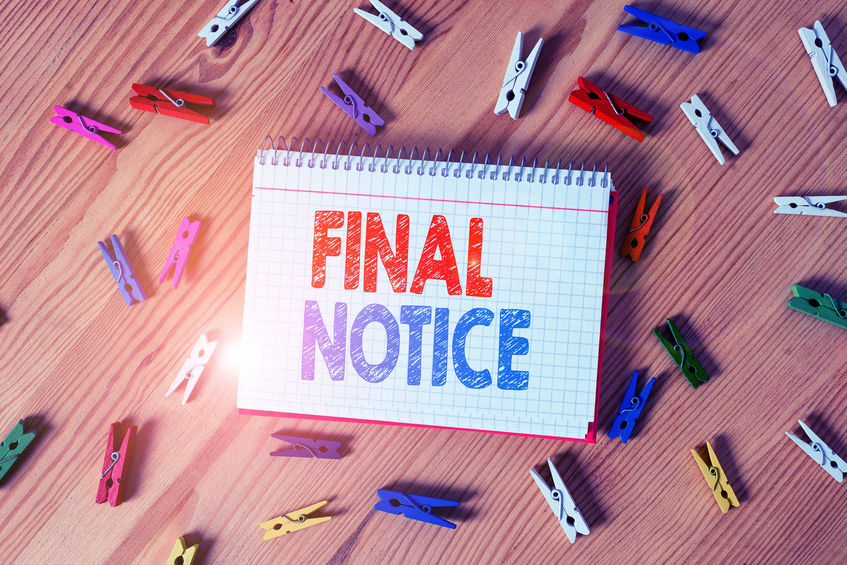What Is a Collection Notice?
A collection notice is a letter from a debt collector identifying debts they are seeking to recover. Generally, a collection notice is sent via mail in the form of a letter. If a debt collector contacts you by phone, insist on being contacted in writing and do not disclose any personal or financial information without confirming the debt collector’s legitimacy. Contact a lawyer if you think you are being sued, will be sued, or if you are unsure of the letter, what is being collected, and/or why.
You Just Received a Collection Notice, Now What?
Don’t panic and don’t ignore it! Once you receive a collection notice, there are a few easy steps you should take. First, verify the information in the letter. This means you should ensure the debt collector is addressing the correct individual (or business entity) and that all of the information in the letter is properly stated and addressed.
By law, debt collectors are required to disclose certain information in the collection notice letter. Because of this, your next step should be to ensure the proper information has been disclosed, this includes:
- The name of the creditor
- The amount owed
- Statement informing your right to dispute the debt
- Statement informing you the debt will be assumed valid if you fail to dispute the debt within 30 days of receiving the notice
- Statement informing you that a written dispute of the debt within 30 days requires the debt collector to provide verification of the debt
- Statement informing you that the debt collector will provide the name and address of the original creditor, if different from the current creditor, if requested within 30 days of receiving the notice
What can debt collectors do? What can they not do?
Debt collectors have the right to contact third parties in attempt to reach you and notify you of your debts. However, the only information they can receive from third parties is your address; anything more would be considered harassment. For example, if a debt collector contacts your work in efforts of locating you, they legally cannot ask for anything else than your home address. Debt collectors can also contact you after you send a written statement to no longer be contacted, if they are doing so to state they will no longer be contacting you or if they are informing you that a lawsuit has been filed against you.
Your rights are important, and your rights are protected. The law forbids debt collectors from doing any of the following:
- Pretending to work for a government agency or claiming to work for a consumer reporting agency
- Threatening to have you arrested if you do not repay your debts
- Publicly shaming you into paying your debts
- Attempting to collect debt you do not owe
- Harassing you by using threatening violence or harm; obscene language; repeatedly calling; calling before 8 a.m. and after 9 p.m. without permission; calling you at work after you forbade it in writing; contacting you after sending a written request to the debt collector forbidding further contact.
It is important to not let debts linger. Take action when you receive a collection notice to prevent further accumulation of debts and harm to your credit. Regardless of what the reason for your debt is, reach out to the debt collector; there may be payment plans available to help you pay off your debt at a financially reasonable and appropriate pace.








